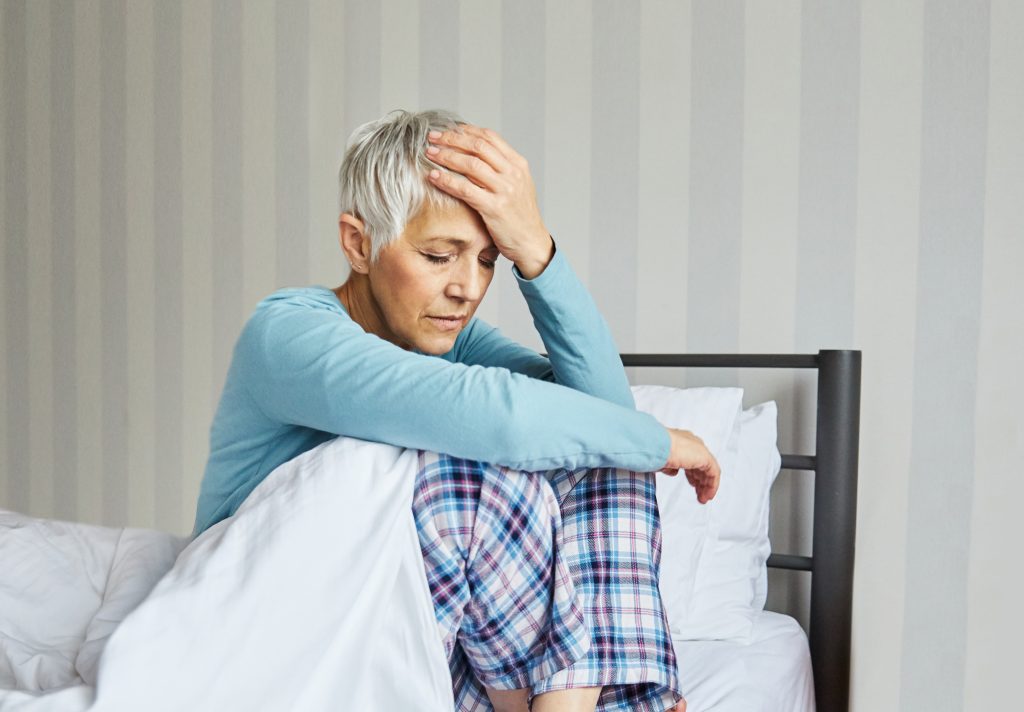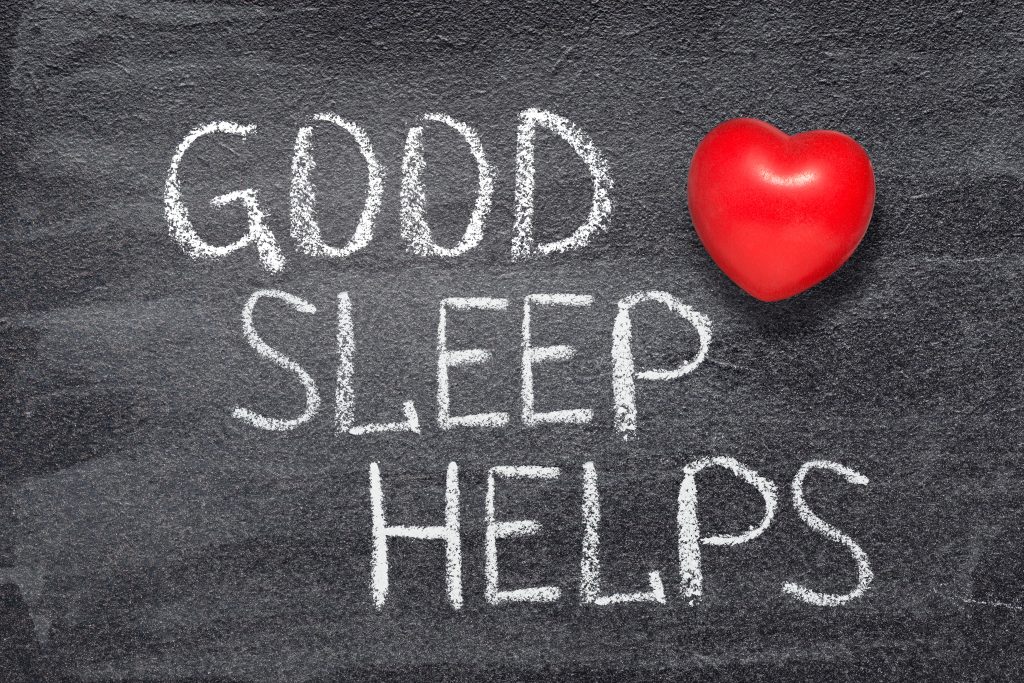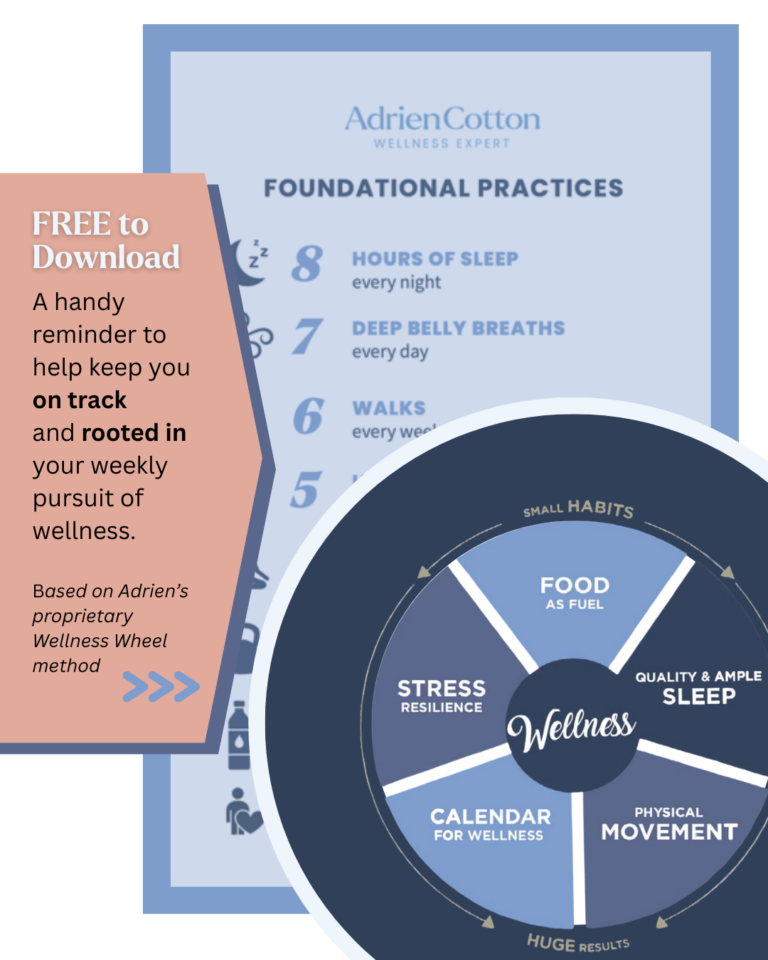Around age 35, I started to have serious sleep issues. I couldn’t fall asleep, or I woke up in the middle of the night. I had a lot on my plate, and looking back, I must have appeared like I was constantly frazzled. I never sat. I was not in a good place.
The night sweats and restless mind interrupted my sleep and put my wellness in jeopardy – for some, that’s an every night occurrence. I found my solution by focusing on the connection between sleep and stress.
The Interplay of Stress and Sleep
For women, hormonal shifts starting in our mid-thirties redefine our bodies and change everything, including how we need to approach wellness. Hot flashes and night sweats become common just as women find themselves in the busiest seasons of their lives, juggling family responsibilities, career demands, and caring for others.
Not surprisingly, studies show that 61% of menopausal women report experiencing poor sleep quality, with insomnia affecting 40-50% of women during this phase. Stress impacts 60-70 million Americans, and it contributes to many health issues, including heart disease, diabetes, and mental health disorders.
To compound the problem, stress and sleep are bi-directional. When one is off, so is the other. Chronic stress, whether recognized or not, disrupts our sleep. Likewise, when we don’t get adequate sleep, we are more likely to stress. And the vicious cycle continues.

When we prioritize sleep, we are able to be less reactive– and more responsive –in stressful situations. The less reactive we are during our days, the more likely we are to experience more restful sleep. See the connection?
Don’t get me wrong – stress is normal. Yet, our bodies are not equipped to manage chronic, habitual, and prolonged stress. The day-after-day stress and restless sleeping depletes our reserves and takes its toll.
Menopause demands a recovery period for this depletion more than ever. To facilitate this recovery, women need 7 to 7 ½ hours of sleep every night. Sleep is the body’s way of recharging and healing – it’s certainly not a waste of time that could be spent working on our other to-do’s.
Even though rest is so crucial, the menopausal hormone shift is amplified by the stress of our hectic lifestyles, resulting in disrupted and insufficient sleep. With responsibilities piling up, getting ready for bed often takes a back seat. Getting sleep during menopause isn’t a luxury; it is vital for cognitive function, memory retention, and emotional well-being. The demands on our bodies during menopause, both hormonal and social, make quality sleep and a quiet mind a non-negotiable priority.
So, what makes achieving necessary rest and peace of mind so difficult?
Elevated cortisol, the hormone behind stress, is the cause of our physical and emotional discomfort. The adrenal glands release this stress hormone, creating the “fight or flight” response. While normal cortisol levels offer benefits such as strengthening the heart and reducing pain sensitivity, the excessive presence of cortisol can lead to sugar dependence, heightened reactivity, increased susceptibility to injuries, and a heightened vulnerability to serious illnesses. The detrimental effects of cortisol are amplified during the stress of menopause, affecting appetite management, safe movement, and overall well-being.
What’s the stress solution? Get your sleep!
The best way to stress less is to get your sleep, all 7-7.5 hours of it.
Sleep is essential to our health and wellness, especially during midlife. It is an indispensable ally. Sufficient and uninterrupted sleep helps our bodies navigate hormonal changes and the everyday demands of this new season in our lives.

Here are three strategies that will help craft a bedtime ritual that allows your brain to rest and recharge for the day ahead:
- Make your bedroom comfortable – and COOL.
- Stow your phone, tablet, and other electronics out of sight and mind.
- Set a consistent time to turn off the outside world.
Did you know there are proven steps you can take to MASTER your sleep schedule as you MASTER your stress in a holistic way? My course, MASTER Menopause NOW! will help you feel better in your body, reduce stress, and have a great night of sleep… every night.



